I apologize to the DonorDreams community for not publishing anything in the last two weeks. I’ve been working on this very personal post and it took me quiet a long time to get it all out and written the way I wanted. Today’s post is heavy and serious, but I’m hopeful you will enjoy and appreciate what went into writing it. Here’s to your health! ~Erik
Step into my shoes and see the non-profit world through my eyes
By Erik Anderson
The Healthy Non-Profit LLC
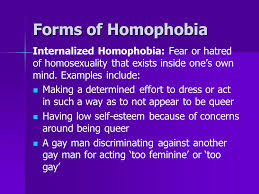 Recently, I was approached with a business lead and encouraged to pursue it. In discussing the opportunity with friends, they shared that I’d have a better chance teaching a pig to fly than securing the work in question.
Recently, I was approached with a business lead and encouraged to pursue it. In discussing the opportunity with friends, they shared that I’d have a better chance teaching a pig to fly than securing the work in question.
Why?
Because one of the organization’s biggest stakeholders was seriously homophobic. This influential individual wasn’t just politically opposed to the LBGTQ agenda, which has been front and center in our news cycle for the last few years, but they allegedly advocate for not hiring gay people for a number of unfounded and ignorant reasons.
As a gay man in a 14-year married relationship and living openly and out of the closet with my husband, you can imagine some of my initial reactions to this revelation . . . denial, hopelessness, anger, etc. After working through these feelings, I found myself in a familiar place, which was inside my own head fighting against my internalized homophobia.
After working through some of these emotions, I decided to blog about my non-profit journey as it pertains to my sexual orientation. I promise you that this will be a very factual blog post. My intention is to simply share experiences and not editorialize. If I choose to offer a few suggestions, I will do so in a subsequent post.
My time with the Boy Scouts
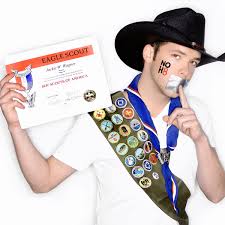 I know what you’re thinking, and I did know about the Boy Scouts of America’s (BSA) membership policy restrictions before I applied. I loved this organization so much (e.g. being a member since 7-years-old, Eagle Scout, summer camp staff, etc), I actually convinced myself that I could be celibate and never need to worry about being caught.
I know what you’re thinking, and I did know about the Boy Scouts of America’s (BSA) membership policy restrictions before I applied. I loved this organization so much (e.g. being a member since 7-years-old, Eagle Scout, summer camp staff, etc), I actually convinced myself that I could be celibate and never need to worry about being caught.
At the time of the job offer, very few people knew that I was gay. I had recently gone through a divorce and had only recently started grappling with sexual orientation questions. Interestingly, it was the BSA’s job offer that prompted me to come out of the closet to my Mom (she was the first family member I had told).
Why?
Because there were scout professionals and volunteer leaders who were being fired for being gay, and it was common for those events to make their way into newspaper stories. When I thought about the possibility (albeit unlikely) of my family learning about my secret from a newspaper article, it broke my heart and prompted me to take action. I drove from the council parking lot to my Mom’s place of employment, which is where I tearfully confessed my secrets and asked for her help in making an employment decision.
I loved my time working for my local BSA council. I was back in the youth development sector working with volunteers and learning new skills (e.g. fundraising). For my career, things were sunny. For my personal life, things were dark. The LBGTQ question was top of mind for the organization, and I can honestly say it was a topic of conversation among employees and volunteers at least a handful of times every month.
Here are a few examples of conversations I vividly recall:
- Volunteers pointing at phrases in the Scout Oath and Scout Law to justify the ban on LGBTQ kids and adults. Phrases such as “morally straight” or “A scout is clean” or “A scout is reverent“
- What to do about a group of teenage scouts who were doing inappropriate and seemingly somewhat sexually experimental things on camping trips and whether or not those activities should be considered “gay” and a violation of the BSA membership policies.
- The day after Matthew Shepard was attacked, tied to a fence and stoned to death for being gay, every scout professional in the country received a media notice from the national office. The alert informed us of the incident, identified one of the murderers as an Eagle Scout, and provided scout professionals with instructions for what to do if contacted by a member of the news media.
- A colleague and friend expressing concern that I wasn’t dating anyone after a few years of being divorced, and humorously suggesting I should be careful because “people might assume that I was gay.”
- Of course, the Supreme Court case — Boy Scouts of America v. Dale — was still in the media spotlight and everyone loved speculating and chattering about hypotheticals (e.g. the Mormon church would disaffiliate if the ruling went against the BSA, membership would fall, councils/camps would close, etc)
- My favorite conversations (sarcasm intended) were with adult leaders who saw gay men as a perversion and outright said or strongly implied that gay men were pedophiles.
It was an uncomfortable few years, which is why I was so excited to receive a job offer to become the executive of a local Boys & Girls Club organization.
My time with Boys & Girls Club (local)
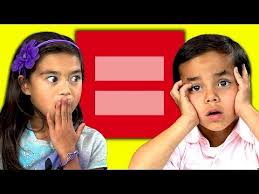 While I was coming out of the closet to more family and friends by this time, I strategically made the decision to professionally remain in the closet. The following is a myriad of reasons (aka fears) that ruled my life at the time and provided me with the excuses to remain closeted:
While I was coming out of the closet to more family and friends by this time, I strategically made the decision to professionally remain in the closet. The following is a myriad of reasons (aka fears) that ruled my life at the time and provided me with the excuses to remain closeted:
- Our organization had strong support among the African American community and was seen by some as the main after-school provider for that community. When you juxtapose this reality with the news reports and studies about homophobia within the African American community, it was enough to give me pause.
- I had local religious leaders serving on my board of directors and helping with fundraising efforts, and none of those congregations were LGBTQ friendly.
- There were socially conservative individuals who were donors to the organization, and the idea of someone pulling their support, because they didn’t like the executive director’s sexual orientation, was a risk I didn’t feel comfortable taking.
- The State of Illinois had not yet passed Employment Non-Discrimination Act (ENDA) legislation, and I asked the board to change the organization’s EEOC policy to include “sexual orientation” protections. I wasn’t motivated by my circumstances, but some foundations at the time were making their funding contingent on making these changes. Needless to say, that was an uncomfortable boardroom discussion.
Working for the Boys & Girls Club was a significant improvement from the toxic anti-LBGTQ Boy Scout culture; however, I met someone in 2003 and started secretly dating him. After integrating him into my professional life by introducing him as a “fundraising volunteer,” it became clear this strategy only would work for a short period of time. It was obviously not sustainable.
In December 2006, I dropped to one knee and asked the love of my life to spend the rest of his life with me. This was prior to civil unions and marriage equality. Within 60 seconds of proposing, I asked for the largest favor that I had ever asked anyone in my life. I asked my husband-to-be if he could give me up to 12 months to find a new job before we move in together and plan a reception/party for family and friends where we could proclaim our love for each other and intentions to spend the rest of our lives together.
What should’ve been one of the happiest moments of my life, instead felt conflicted and complicated because of my internalized homophobia.
Boys & Girls Club (national staff)
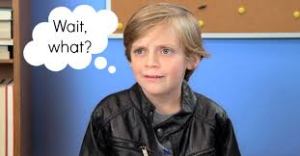 It didn’t take a year for me to find a new job. I hooked on with the national organization. I naively thought my professional life in the closet might be coming to an end. However, it was just a few days into my new job that a very dear friend, who also worked for the organization, spelled out the “rules of being gay.”
It didn’t take a year for me to find a new job. I hooked on with the national organization. I naively thought my professional life in the closet might be coming to an end. However, it was just a few days into my new job that a very dear friend, who also worked for the organization, spelled out the “rules of being gay.”
He explained that many of my co-workers would be generally accepting. He even suggested some professionals and volunteers working for local affiliates (which were the clients I would be working with as an internal consultant) might also be very accepting. However, there would likely be many local affiliates located in smaller communities, who wouldn’t take kindly to an openly gay individual coming into their boardrooms and communities to work with them on fundraising and organizational development.
So, the bottom line was . . . “Be careful and use your common sense.”
Yet, it was the final few sentences of this conversation I found chilling and a cold splash of reality. He said:
“Erik, if local organizations choose to lock you out because of your decision to be open about your sexual orientation, your employer won’t be firing you because you are gay. They will simply be firing you because you are ineffective in getting your job done.“
While truer words have never been spoken on this subject to me, the result was more time in my professional closet and continued “game playing.”
Some of you are probably wondering what I mean by “game playing.” Let me try to explain . . .
It was very common for the organizations with which I worked to ask all sorts of personal questions during the course of our work. The following are just a few examples:
- Where do you live? Grow up?
- What is your background? (both personally and professionally)
- Why did you leave your Boys & Girls Club to work for the national office?
- Are you married? For how long?
- Do you have kids? Do you want kids?
I never viewed these questions as something stemming from nosiness or inappropriateness. I understood that consultants (regardless of whether they are internal or external) and their clients must develop a foundation of trust. Without trust and a great rapport, it is impossible to achieve goals and grow the organization.
So, the following are a few examples of the “games” I would play:
- become silent and only answer direct questions
- answer a benign question or two before changing the subject
- play the pronoun game (e.g. only refer to my husband as “my spouse” or “they”)
My time at Boys & Girls Clubs of America was a time of tremendous personal and professional growth. I love the people there, and there isn’t a day that passes when I don’t think about how grateful I am. (Who knows? Maybe I’ll go back one day if the timing and situation are right.)
Shortly after turning 40-years-old, I found myself in a difficult place of conflict. I suspect many people might call this a “mid-life crisis.” While there were many things playing into this emotionally tumultuously time in my life, I’m confident my continual practice of “lies of omission” in my work life helped this situation germinate.
The idea of spinning off my own non-profit consulting practice started making a lot of sense to me.
- I could choose my own clients
- I could develop my own toolkit, approaches and points of view
- I could cut back on my travel schedule based on who I decided to take on as clients
- I might be able to start living my life completely out of the closet (professionally speaking)
The Healthy Non-Profit LLC
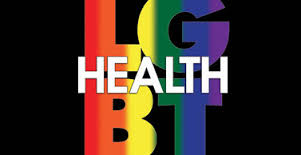 In May 2011, I registered my new non-profit consulting practice with the Illinois Secretary of State. The Healthy Non-Profit LLC was born.
In May 2011, I registered my new non-profit consulting practice with the Illinois Secretary of State. The Healthy Non-Profit LLC was born.
If you’ve gotten this far, then you probably can see what is coming, and it can all be summed up in an old expression: “The grass isn’t always greener on the other side.”
I get many phone calls from organizations wanting to hire me, and I immediately wonder how open would they be to hiring me if they knew I was gay. While this was a concern when I was an internal consultant working for Boys & Girls Clubs of America, it is even more acute now that I am an external consultant.
Why? Because external consultants don’t get paid if they don’t sell work, which means there can be a financial incentive to bend on your values/principles from time-to-time.
Here are just a few examples of difficult situations in which I’ve found myself over the last five years:
- I was in a client’s boardroom getting ready for my portion of the agenda while board volunteers argued over revisions to their bylaws pertaining to LGBTQ questions
- I was verbally pinned down by a board volunteer, who didn’t have much patience for the pronoun game I was playing, and I flat out lied by turning my husband into my wife
- After mustering a little courage and referencing my husband in a conversation with staff (who you could tell were shocked and confused by what I was saying), I was a coward and reverted back to the pronoun game
- I periodically get requests for proposals from faith-based organizations, which a majority of the time I will refer to other consultants because I’m convinced they wouldn’t want to work with me if they knew the truth
And this is where I am at today.
However, before I wrap up this long blog post, I want to go back to the very beginning, which is where I should’ve started but didn’t have the courage to do so.
And in the beginning . . .
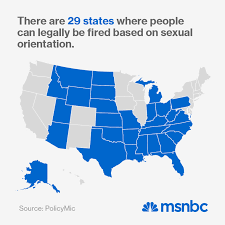 As a recent college graduate, I accepted a unit director position working at a new Boys & Girls Club in a very small rural town. I only stayed one year because I couldn’t pay the bills on that salary. The person who they hired to replace me didn’t last very long. I was asked by the advisory board to sit down with the search committee to help them build a candidate profile and brainstorm ways to build a better applicant pool.
As a recent college graduate, I accepted a unit director position working at a new Boys & Girls Club in a very small rural town. I only stayed one year because I couldn’t pay the bills on that salary. The person who they hired to replace me didn’t last very long. I was asked by the advisory board to sit down with the search committee to help them build a candidate profile and brainstorm ways to build a better applicant pool.
What happened in that meeting was of no consequence to today’s blog post, but it left an indelible mark on my heart.
Here is how the post-meeting dialog went down (names are changed to protect the not-so-innocent):
Joe: “Before we all leave, there is one other thing I want to discuss with the group.”
Mark: “Sure, please tell everyone what you and I discussed before the meeting.”
Joe: “Well, I don’t know if everyone knows, but the organization’s executive director recently had a roommate move in with him. This male friend was his former roommate from the last community where he worked, and he just moved halfway across the country to join him up here.”
Mark: “Can you be a little more specific for those who may not understand what you’re getting at, Joe?”
Joe: “Well, I’m saying this guy is much more than his ‘friend’. They are a couple. With what we’re trying to teach the youth of our community, I don’t think the corporate board is sending the right message by putting this guy as the face the entire organization.”
Mark: “So, what are you suggesting we do about it?”
Joe: “I think we need to call a few members of the corporate board, talk with them about the situation, and get it figured out.”
The messages I heard and internalized were loud and clear:
- Gay people need not apply
- If you do get the job, then you better hide because we’re watching closely
- If you don’t hide well enough, then we’re going to “talk it over, figure it out, and then come for you“
A Call To Action?
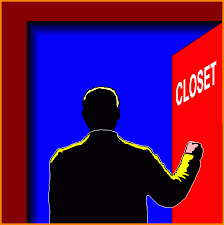 I promised you in the very beginning of this post that I would refrain from editorializing; but I will end with two calls to action (one of which is for me and other is for you).
I promised you in the very beginning of this post that I would refrain from editorializing; but I will end with two calls to action (one of which is for me and other is for you).
While I am not the most religious person, I cannot get this Bible verse from the Book of Genesis out of my head:
“And God said, “Let there be light,” and there was light. God saw that the light was good, and he separated the light from the darkness. God called the light “day,” and the darkness he called “night.” And there was evening, and there was morning—the first day.“
For too long, I have not let light into my professional life. As you can imagine, the closet is a very dark place. While I cracked the door on this closet many years ago and shared the truth with some of my non-profit friends and colleagues (e.g. introducing them to my husband, talking about my life truthfully, etc), many people still don’t know and many new clients that comes into my life don’t have any idea.
So, today’s long blog post represents “. . . the first day” in a new professional life. The truth is that I don’t have a clue how I will go about achieving this bold proclamation, but I do know that my personal call to action is . . . to dedicate every fiber of my being towards figuring it out. Enough is enough!
This, of course, brings me to my second call to action, which involves you.
If you are a DonorDreams blog reader or subscriber who doesn’t see eye-to-eye with me on LGBTQ issues, let’s just simply agree to disagree. My hope is that you can try to see the non-profit community through my eyes and maybe you can see our values are more similar than dissimilar. More importantly, I hope you see that we have similar goals around making your organization bigger, better and stronger, which has nothing to do with what happens in my personal life.
However, if this isn’t possible, then please know that I accept you. Thank you for all of the good things you do every day for other people. Best wishes!
If you are a DonorDreams blog reader or subscriber who does see eye-to-eye with me (or perhaps this blog post helped you see things from a different perspective), then I have a favor to ask of you. If you think other people in your social networks might benefit from stepping into my shoes and seeing the non-profit world through my eyes, then please electronically share this blog post on Facebook, Twitter, LinkedIn, etc and ask your connections to share it with their networks and so on and so on forth.
If enough people start looking at homophobia in the non-profit sector differently, then maybe more non-profit professionals, volunteers and clients might have the courage to burn down their closets like I am attempting to do. At which time, we can all start having honest discussions with each other. I suspect those discussion threads could be endless (e.g. programs, services, policies, procedures, bylaws, recruitment practices, marketing, resource development and fundraising, etc).
If you have strong thoughts on this subject, please feel free to share in the comment box below. I will approve all comments unless they are violent, extraordinarily hateful, or too far off topic. As I typically say at the end of my posts, we can all learn from each other.
I also usually sign-off by saying, “Here’s to your health,” but today I think I’ll change it up for the first time in five years by saying . . .
Here’s to your health (and my health, too)!
Erik Anderson
Founder & President, The Healthy Non-Profit LLC
www.thehealthynonprofit.com
erik@thehealthynonprofit.com
http://twitter.com/#!/eanderson847
http://www.facebook.com/eanderson847
http://www.linkedin.com/in/erikanderson847

 When I graduated college with my masters degree in Urban Planning in 1994, our country was still emerging from a small recession (you know the once that propelled Bill Clinton into the White House). Needless to say, government jobs in urban planning offices across America were still in short supply, and there were many people with much more experience waiting in line for jobs ahead of me. It was this economic dynamic that forced me to innovate, changing my job search parameters and propelling me into the non-profit sector.
When I graduated college with my masters degree in Urban Planning in 1994, our country was still emerging from a small recession (you know the once that propelled Bill Clinton into the White House). Needless to say, government jobs in urban planning offices across America were still in short supply, and there were many people with much more experience waiting in line for jobs ahead of me. It was this economic dynamic that forced me to innovate, changing my job search parameters and propelling me into the non-profit sector. I loved working for the Boy Scouts because I learned so much including:
I loved working for the Boy Scouts because I learned so much including: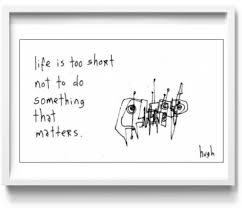 Look into your heart and understand your passions
Look into your heart and understand your passions